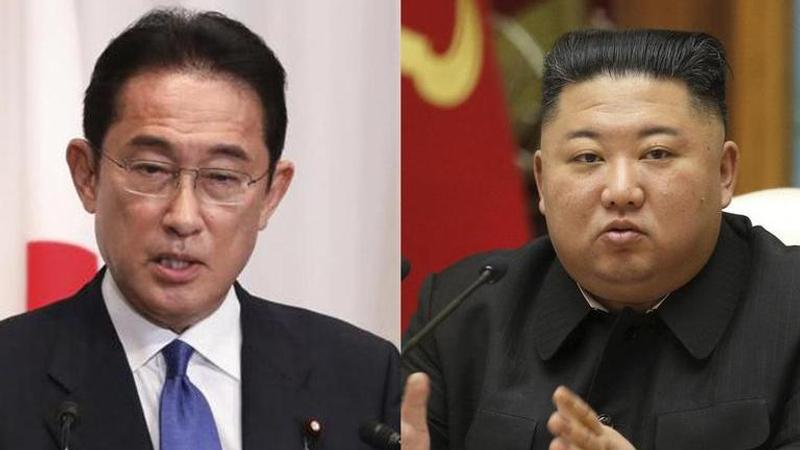Published 16:37 IST, December 20th 2022
North Korea 'displeased' with Japan's security strategy approving biggest military buildup
Japan has adopted a new security strategy in light of the growing North Korean and Chinese threat in the region. North Korea has condemned this new strategy.

Denouncing Japan's new security strategy, North Korea on Tuesday warned that it will show how "wrong" and "dangerous" Tokyo's choice is with unspecified moves. Japan recently adopted new security strategy in light of the growing North Korean and Chinese threats in the region. The new national security strategy includes determination to possess "counterstrike" capability to counter attacks from enemies.
In a statement, North Korea's foreign ministry said: "The Kishida regime seeks to turn Japan into an offensive military giant by carrying into practice the new "state security strategy", "state defense strategy" and "defense capability buildup outline". This is arousing great concern of the DPRK and other neighboring Asian countries and region. The so-called "counterattack capability" advocated by Japan has nothing to do with the possession of legitimate right to self-defense by a sovereign state, and it is the preemptive attack capability to strike other countries' territory from A to Z".
"Our country will continue to take actions to show how much we are concerned and displeased with Japan's unjust, greedy attempt to realize its ambitions," the statement added.
Japan's new security strategy has been celebrated in US' foreign policy and military strategy circles. The statement adds that Japan is a war criminal state which has imposed suffering on Korean people in the past and not apologised for it. It further claimed that Tokyo's decision to acquire a counter-strike capability has nothing to do with legitimate right of self-defence.
Context
Since the 2nd World War, Japan's military has been limited by Article 9 of its constitution. The constitution was written by American officials when they occupied Japan after Tokyo's defeat in the 2nd World War. It is also known as the MacArthur constitution, named after Douglas MacArthur, who was the Supreme Commander for the Allied Powers during the occupation of Japan. It was adopted on May 3, 1947, following World War II. It is a codified constitution that serves as the supreme law of Japan and outlines the country's system of government, as well as its fundamental principles and rights. The Japanese Constitution is based on the principle of pacifism and renounces war as a means of settling international disputes. It also limits the country's military, known as the Self-Defense Forces, to defensive purposes only.
The goal of the Americans was to avoid another Japanese military buildup. However, with the emergence of the Cold War, the dynamics changed and soon Japan was an ally of the US. During the Cold War, the threat was the USSR and now it is China and North Korea. The US now wants a Japanese military buildup to ensure China does not become a hegemon in Asia. A key development on this path occured last week, when Japan adopted a new security strategy, as a part of which Japan decided it will develop the capability for a preemptive strike for "defensive purposes".
The role of history in North Korea's perception of Japan
Japan's decision to build up its military is a particularly touchy topic for North Koreans because of Korea's painful history under Japanese imperialism. North Korea, like much of the Korean Peninsula, suffered greatly under Japanese occupation from 1910 to 1945. The Japanese sought to suppress Korean culture and impose their own language and customs on the Korean people. They also implemented policies to exploit the country's natural resources and labor for the benefit of the Japanese empire.
During this time, many Korean people were forced into labor, including in mines and factories, and were subjected to harsh and abusive treatment. The Japanese also sought to suppress any resistance to their rule, and many Koreans were arrested, imprisoned, and tortured for their political activities or for expressing dissent. The Korean independence movement, which sought to end Japanese occupation and achieve self-determination for the Korean people, was brutally suppressed, and many of its leaders were executed or imprisoned.
Updated 16:37 IST, December 20th 2022




